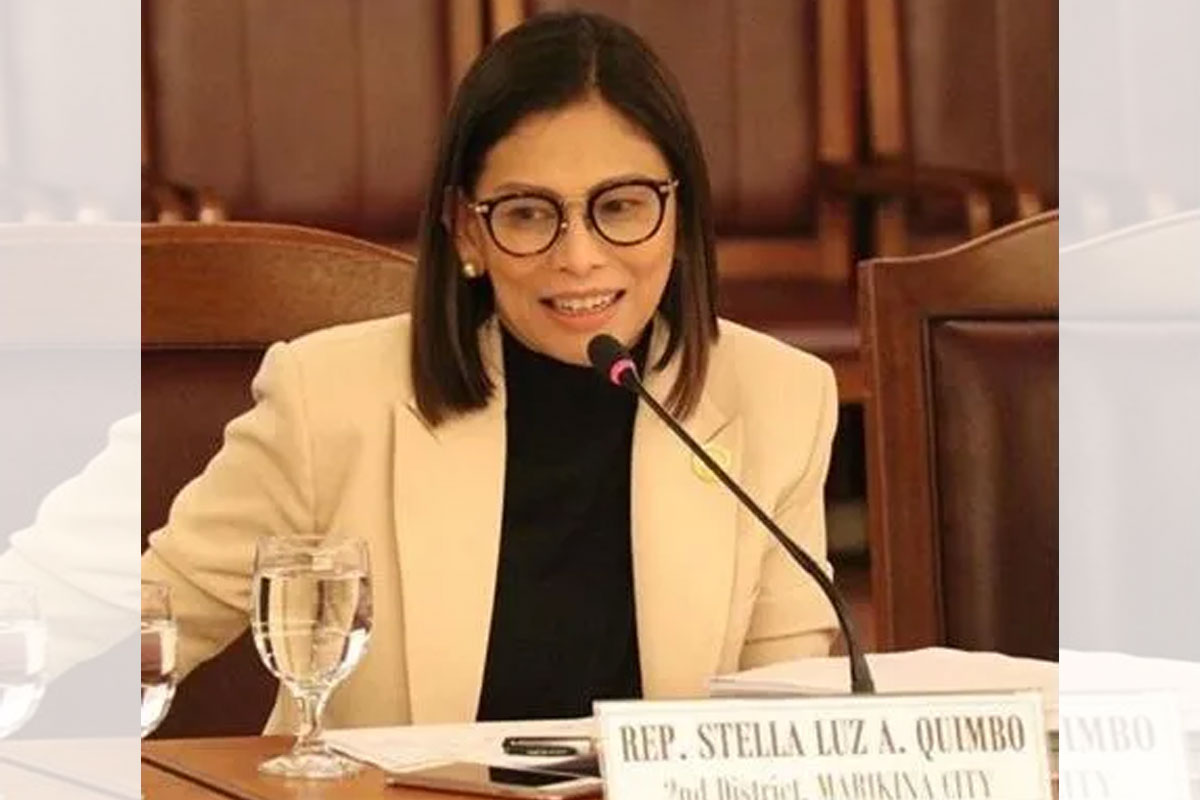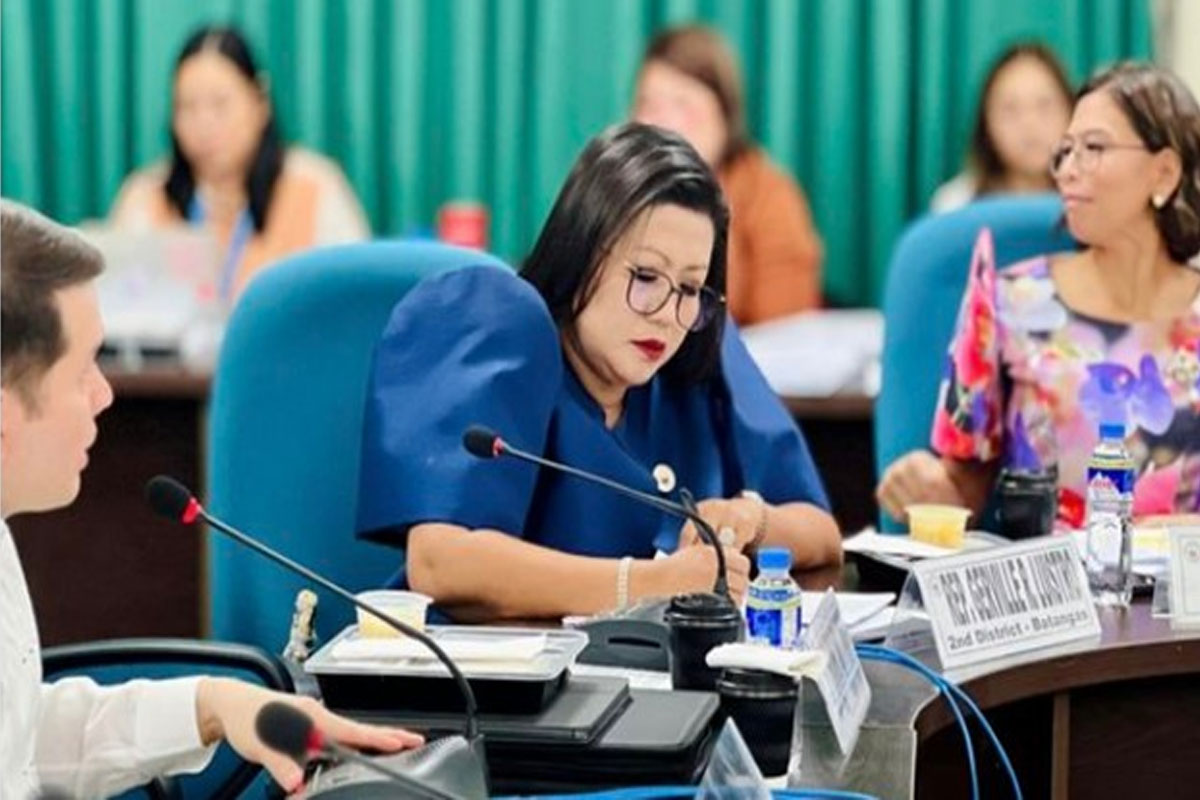
Proposed P5T spending plan for 2023 ‘on track’ for passage
AFTER more than a week of tedious and lengthy budget deliberations with the individual departments, House Committee on Appropriations officials said Tuesday that the proposed P5.268-trillion national spending plan for 2023 is still on track for its passage by October 1.
House Appropriations Committee Chairperson Elizaldy Co said his committee’s vice-chairperson, Marikina Representative Stella Quimbo, has been especially methodical in reviewing the three-volume, 3,334-page National Expenditure Program for Fiscal Year 2023.
“We are on track. Every member of Congress is working double time attending and participating in the budget hearings. Our own committee vice-chairperson Stella Quimbo, together with other members of the committee, is helping me move the hearings forward and thoroughly go over the P5.268 trillion national budget for 2023,” said Co.
“As of yesterday (Monday), 14 out of 34 agencies have briefed Congress regarding their respective budget proposals,” Quimbo, senior vice chairperson of the House Committee on Appropriations, said during the Ugnayan sa Batasan Majority News Forum.
“With two more weeks of budget briefings, the appropriations committee, led by Chairperson Elizaldy Co, gladly shares that we are still on track with our target date to pass the GAB by October 1, 2022. On September 16, we are expected to finish the budget hearings and head on to plenary debates by September 21. Even before the budget hearings commenced, everyone took their tasks seriously by having clear communication lines with the agencies,” Quimbo said.
The GAB stands for the General Appropriations Bill, which is the budget measure to be filed by the House just before the plenary debates.
The P5.268-trillion National Expenditure Program (NEP) for 2023 is the precursor of the GAB.
“Healthy exchanges between departments and members of Congress transpired during the said budget briefings. Among the agencies that briefed the Committee on Appropriations were the DBCC, DA, DOE, DILG, the DENR, DOT, and the Office of the President. Today, the hearing for the DSWD is underway,” Quimbo said.
Among the 14 agencies that have briefed the committee are the Development Budget Coordination Committee, the Office of the President, and the Departments of Agriculture, Energy, Interior and Local Government, Environment and Natural Resources, and Tourism.
At Tuesday’s hearing of the Department of Social Work and Development (DSWD) budget, Co said the increase in the budget of DSWD’s flagship assistance program next year will help lift the country’s poorest of the poor out of poverty, malnutrition, and lack of opportunity and education.
He said DSWD’s “Pantawid Pamilyang Pilipino Program” (4Ps) addresses both the immediate need for social assistance and the strategic goal to break the intergenerational cycle of poverty.
“Ang malabis na kahirapan, malnutrisyon at kawalan ng oportunidad at edukasyon ay hindi na dapat maranasan ng mga susunod na henerasyon ng mga Filipino,” Co said.
The House appropriations committee head thanked the President for the 7.3 percent 4Ps’ budget increase from P107.7 billion that will have served 4.37 million households this year to P115.6 billion to reach 4.4 million households next year.
“We commend the President for increasing the support for 4Ps in 2023,” he said.
Co noted that DSWD’s role at the height of the pandemic was “immense and immeasurable”. DSWD’s various assistance programs allowed Filipinos to cope with the multiple and sometimes simultaneous crises brought about by lockdowns, typhoons, volcanic eruptions, and earthquakes.
He enumerated the beneficiaries of DSWD programs: around 700,000 households that benefited from its disaster response program, 209,000 households that received emergency shelter assistance and cash for work, the 3.6 million individuals who benefited from its “Assistance to Individuals in Crisis Situations” program, and the 3.7 million senior citizens who received social pensions.
“Your agency performance, at this time, needs not only praise and commendation but full support from the House of Representatives for all your programs and projects for [the] Fiscal Year 2023,” Co said.
Quimbo shared that thus far, the discussions in the budget briefings have revolved around some of the key spending priorities of the 2023 budget. These include the Agriculture and Fisheries Modernization Program and the Total Electrification Program, among others.
Quimbo said that various issues had been raised with the different agencies throughout the hearings.
“Halos lahat ay humingi ng konsiderasyon sa kanilang mas mataas na budget proposal na sinumite sa DBM [Department of Budget and Management ]. Bagamat sinuportahan ito ng maraming kongresista, hindi pa clearly identified ang mga programang puwedeng pagkunan ng budget increases. Ayon sa Konstitusyon, hindi na puwedeng palitan ang budget ceiling na [P]5.268T. Kaya’t kung tataasan ang halaga ng isang budget item, kelangan bawasan ang isa pang budget item,” Quimbo said.
“Gayunpaman, hindi rin naman ganun kataas and budget utilization rate ng ilang ahensiya. The absorptive capacity of the agencies is a perennial challenge kaya dapat mapagtuunan talaga ng pansin ang pagbabantay sa execution ng budget,” Quimbo explained.
“Devolution was also a recurring issue, particularly in DILG and DENR. Lawmakers have shown concern regarding the capacity of LGUs to absorb the devolved functions from national agencies, especially with a smaller NTA from last year. Finally, we observed that digitalization is a common theme in the agencies’ plans to improve their overall operations,” she said.
At any rate, Quimbo said Congress still stands by its goal for the swift passage of the GAB to allow sufficient time for it to exercise its oversight functions.
“This way, we can ensure that the agencies will not only use their respective budgets for programs in alignment with the new administration’s 8-point socioeconomic agenda but will also be genuinely felt by the Filipino people who will benefit from their programs. Rest assured that we will continue to work harder to achieve these goals without compromising on producing a high-quality national budget aimed for prosperity,” she concluded.
















